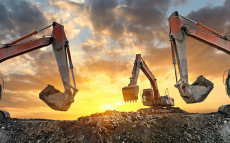- pathfindersAI
- Job Profile
Heating, Air Conditioning, and Refrigeration Mechanics and Installers
Summary
Heating, Air Conditioning, and Refrigeration Mechanics and Installers: A Comprehensive Overview
What They Do
Heating, Air Conditioning, and Refrigeration Mechanics and Installers—often referred to as HVACR technicians—are essential professionals in our modern world, ensuring that our living and working environments remain comfortable and efficient. These skilled technicians specialize in installing, maintaining, and repairing heating, ventilation, air conditioning, and refrigeration systems. From residential homes to commercial buildings, and from hospitals to supermarkets, HVACR systems are ubiquitous, and their optimal functioning is critical to the well-being and productivity of inhabitants.
Job Responsibilities
The duties of an HVACR technician are varied and multifaceted. Their day-to-day responsibilities include installing new HVACR systems, which entails understanding and executing complex technical drawings and blueprints. Maintenance is another critical aspect of the job, as regular inspections and preventive measures ensure that systems operate effectively and efficiently. Technicians are also called on to diagnose and repair systems that have malfunctioned, requiring a deep understanding of system mechanics and the ability to troubleshoot problems accurately. Additionally, they must handle refrigerants, adhering to environmental regulations to avoid harmful emissions. Customer service is another important facet, as they often need to explain system issues and repair processes to clients.
Essential Skills
A successful HVACR technician must possess a blend of technical and soft skills. Technical skills include an in-depth knowledge of mechanical systems, electrical components, and the ability to use specialized tools and diagnostic equipment. Soft skills, such as strong communication and customer service abilities, are equally important, as technicians frequently interact with clients and must clearly explain technical information in layman's terms. Problem-solving skills are paramount, as technicians must quickly and accurately diagnose issues. Furthermore, physical stamina is necessary, given the demanding nature of the job, which often requires lifting heavy equipment and working in constrained or outdoor environments.
Educational Pathways
The pathway to becoming an HVACR technician typically begins with earning a high school diploma or equivalent. Subsequently, prospective technicians can enter technical or community college programs that offer certificates or associate degrees in HVACR technology. These programs provide a mix of classroom instruction and hands-on training, covering topics such as system design, electronics, and safety standards. Many technicians also participate in apprenticeship programs, combining paid on-the-job training with classroom learning. Additionally, obtaining certification from organizations like North American Technician Excellence (NATE) or the Environmental Protection Agency (EPA) can enhance job prospects and professional credibility.
Career Prospects
The demand for HVACR technicians is robust and projected to grow steadily. According to the U.S. Bureau of Labor Statistics, employment in this field is expected to grow by 4% from 2019 to 2029, translating to numerous job opportunities. This growth is driven by the continual need for climate control systems in both residential and commercial settings, advancements in HVACR technology, and the increasing focus on energy efficiency and sustainability. Technicians with formal training and certifications will have the best job prospects, with opportunities to advance to supervisory or managerial roles, or even to start their own businesses.
Conclusion
In conclusion, a career as a Heating, Air Conditioning, and Refrigeration Mechanic and Installer offers a blend of technical challenge, job stability, and opportunities for advancement. With a strong foundation in relevant skills and education, and a commitment to ongoing learning, individuals in this field can look forward to a rewarding career that plays a crucial role in maintaining the comfort and functionality of our built environments. For those with a knack for technical problem-solving and a desire to work in a dynamic and ever-evolving field, HVACR offers a promising professional pathway.
Video
Compensation
| State | Median Salary | Median Hourly | Positions |
|---|---|---|---|
| AL | 47,050 | 22.62 | 6,900 |
| AK | 75,380 | 36.24 | 610 |
| AZ | 49,620 | 23.86 | 10,980 |
| AR | 47,620 | 22.90 | 3,830 |
| CA | 62,230 | 29.92 | 35,630 |
| CO | 61,310 | 29.48 | 7,410 |
| CT | 64,790 | 31.15 | 4,720 |
| DE | 60,550 | 29.11 | 1,990 |
| DC | 78,750 | 37.86 | 340 |
| FL | 49,210 | 23.66 | 37,370 |
| GA | 50,630 | 24.34 | 11,520 |
| HI | 67,660 | 32.53 | 810 |
| ID | 47,500 | 22.84 | 3,280 |
| IL | 64,920 | 31.21 | 10,380 |
| IN | 59,360 | 28.54 | 8,550 |
| IA | 59,010 | 28.37 | 3,840 |
| KS | 51,730 | 24.87 | 3,690 |
| KY | 50,540 | 24.30 | 6,500 |
| LA | 53,660 | 25.80 | 4,830 |
| ME | 57,160 | 27.48 | 2,080 |
| MD | 62,590 | 30.09 | 6,700 |
| MA | 73,700 | 35.43 | 7,410 |
| MI | 51,070 | 24.55 | 10,580 |
| MN | 65,810 | 31.64 | 4,600 |
| MS | 45,950 | 22.09 | 2,890 |
| MO | 57,860 | 27.82 | 8,840 |
| MT | 51,900 | 24.95 | 1,340 |
| NE | 55,270 | 26.57 | 3,440 |
| NV | 58,640 | 28.19 | 4,560 |
| NH | 61,190 | 29.42 | 1,990 |
| NJ | 61,940 | 29.78 | 10,360 |
| NM | 46,250 | 22.24 | 1,770 |
| NY | 64,360 | 30.94 | 22,700 |
| NC | 50,610 | 24.33 | 13,320 |
| ND | 63,030 | 30.30 | 940 |
| OH | 56,960 | 27.39 | 14,450 |
| OK | 48,780 | 23.45 | 5,680 |
| OR | 61,840 | 29.73 | 3,960 |
| PA | 58,240 | 28.00 | 18,980 |
| RI | 62,260 | 29.93 | 1,180 |
| SC | 49,930 | 24.00 | 6,360 |
| SD | 54,500 | 26.20 | 1,120 |
| TN | 48,050 | 23.10 | 9,880 |
| TX | 50,190 | 24.13 | 31,910 |
| UT | 49,850 | 23.97 | 5,620 |
| VT | 56,820 | 27.32 | 1,160 |
| VA | 58,110 | 27.94 | 13,540 |
| WA | 64,830 | 31.17 | 8,140 |
| WV | 46,080 | 22.16 | 1,940 |
| WI | 59,520 | 28.62 | 6,190 |
| WY | 52,910 | 25.44 | 650 |
Similar Occupations
In this area you will find other occupations that are close to the one you were viewing in tasks, knowledge and work environment. If the primary job profile you are viewing isn't quite to your liking, take a look around and see what else is available.
Basic and Premium Accounts have more alternative occupations available than the Free account.

Boilermakers - 47-2011.00
Boilermakers are skilled tradespeople who construct, assemble, maintain, and repair large containers that hold gases or liquids, such as boilers, tanks, and vats. They work with heavy-duty tools and equipment, often in industrial settings, to ensure these structures operate safely and efficiently.
-
$71,140/yr
Median Pay -
11,130
Number of Jobs

Control and Valve Installers and Repairers, Except Mechanical Door - 49-9012.00
Control and Valve Installers and Repairers, Except Mechanical Door, are specialized technicians who install, maintain, and repair devices such as thermostats, gas regulators, and shut-off valves that control the flow of gases or liquids in various systems. They ensure these components function efficiently and safely by testing, calibrating, and troubleshooting potential issues in industrial and commercial settings.
-
$70,100/yr
Median Pay -
47,780
Number of Jobs